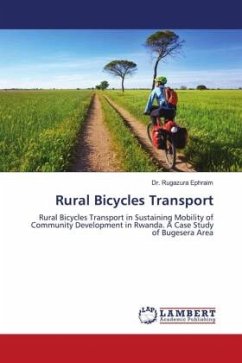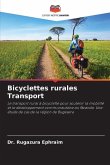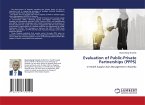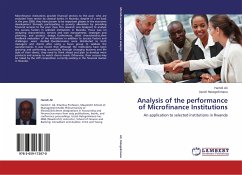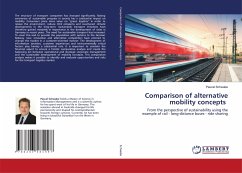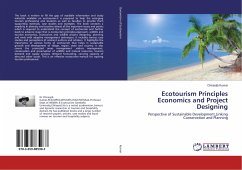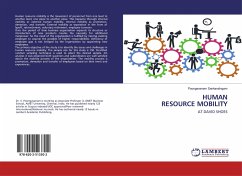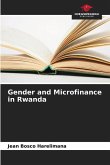The study has led to recommendations for approaches to improve rural bicycle transport services, and for adopting bicycles as an intermediate technology to increase personal mobility. This study synthesizes the key findings and recommendations from research comprising four sector-level surveys of household travel and transport demands, carried out in Ruhuha, Nyamata, Mayange and Rweru. It identifies the circumstances, and how, sustainable improvements can be made in the level of access to rural economic and social services; and examines the institutional, policy and planning implications for governments in Rwanda. The surveys attempted to develop an understanding of the time and effort spent on transport in the context of overall household labour allocation and of the outputs achieved from the inputs to transports. They also sought to analyze local-level rural transport as a factor and constraint in agricultural development and the utilization of essential services. The four study areas and the villages within each area were selected to offer different characteristics of mobility and accessibility.
Bitte wählen Sie Ihr Anliegen aus.
Rechnungen
Retourenschein anfordern
Bestellstatus
Storno

